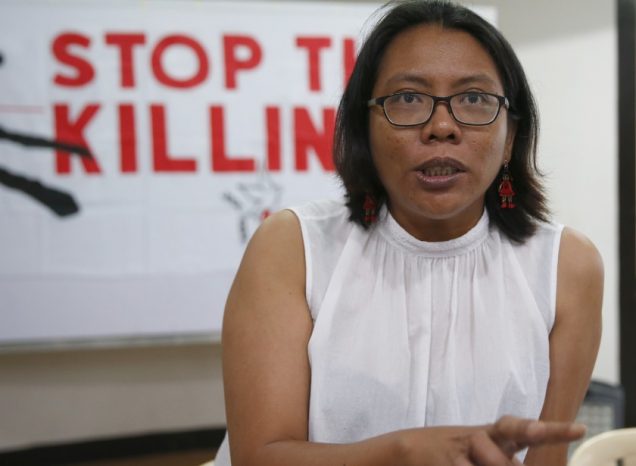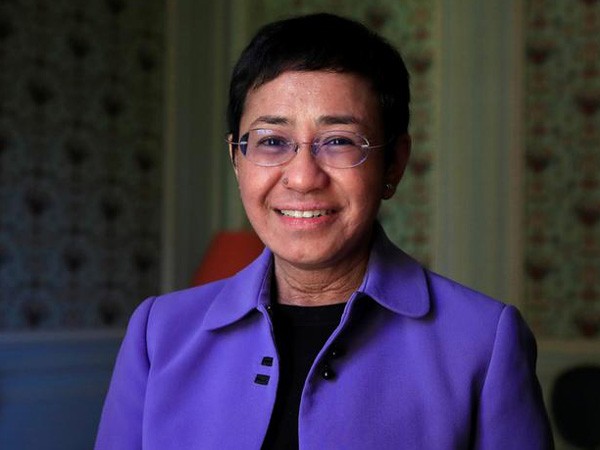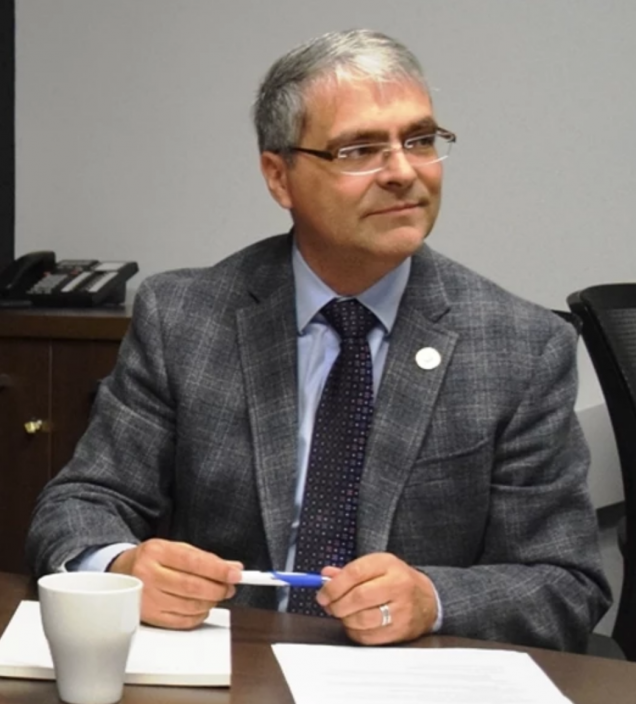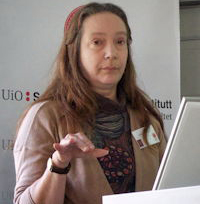‘We eat death, rape, threats for breakfast every day’
‘We eat death, rape, threats for breakfast every day’

Karapatan secretary general Cristina Palabay
Parliament testimonials on human rights in PH
By Lea Luciano
The Philippine Reporter
Human rights advocates and organizations testified before a Canadian Parliament hearing on Tuesday, May 4, 2021, in response to the heightening human rights crisis in the Philippines.
“This is a dangerous time for activists, for lawyers, human rights defenders,” said Cristina Palabay, Secretary General of KARAPATAN, a national alliance of human rights organizations in the Philippines.
Palabay has been the subject of continuous red-tagging and judicial harassment under the Duterte regime.
In the last five years, 394 civilians were killed under Duterte’s counter-insurgency campaign that targeted Indigenous leaders, environmental defenders, journalists, lawyers, and community leaders.
There are currently 703 political prisoners in the Philippines, and the majority of the women human rights defenders are among those who are killed, arrested, and detained.
“We eat death, rape, and threats of sexual violence for breakfast every day, online and offline,” said Palabay.

Rappler’s CEO Maria Ressa
In the midst of fighting a global pandemic, the Filipino people are also battling the epidemic of human rights violations.
“Whether there is a public health emergency or not, there should be no lockdown on human rights. We should normalize putting rights at the front and centre of governance and of our society.”
On July 30, 2020, Duterte signed the Anti-Terror Law that sparked 37 petitions at the Supreme Court to declare it unconstitutional.
Under the Anti-terror law, the law is used to silence anyone who expresses dissent and questions the power of the government.
“This makes red-tagging or when a government calls a journalist or human rights activist a terrorist even more dangerous,” said Maria Ressa, the CEO of Rappler, who was convicted of cyber libel under the Philippine Anti-Cybercrime law.
“I’m a journalist, not a criminal, yet I’m fighting for the basic right to travel and these ongoing cases can send me to jail for the rest of my life,” said Ressa.
The lawlessness of this anti-terror law has created a climate of fear and impunity in the country. The Duterte government has weaponized the law and has enabled an environment where the abuse of power and human rights violations are normalized.
“Violence and fear is part of the environment we live in, and we continue to fight.”

nternational Coalition on Human Rights in the Philippines –Quebec co-chairperson Guy-lin Beaudoin
Guy-Lin Beaudoin of the ICHRP-Quebec called out the Canadian government to end its quiet diplomacy and to suspend its policy and programs linked to counter-terrorism in the Philippines.
Beaudoin questioned the Canadian government’s allotment of its funds towards the support of military trade and operations in the Philippines. From 2018 to 2019, millions of dollars of Canadian money sent to the Philippines has done nothing to promote peace.
“We want the money to be invested according to page 11 of the guidelines to support those people who defend human rights and are the first to be violated, raped illegally, arrested, that’s where we should be putting our money not for military help, not to train the police and the military,” said Beaudoin.
A joint letter was sent to Prime Minister Justin Trudeau’s office on March 16, 2021, by 65 Canadian trade organizations, unions, churches, youth organizations, and human rights defenders following the Bloody Sunday Massacre on March 7, 2021, with no response or action taken.

iningWatch Canada’s
Catherine Coumans
“Canadian mining companies [are] part of the abuse for human rights,” said Catherine Coumans, Ph.D., the research coordinator of Canadian mining companies focusing on the Asia-Pacific region with Mining Watch Canada.
In 2005, Coumans testified with two Indigenous leaders from the Subanon tribe in Mindanao against the threats, forced relocation, and abuse that they are facing from the Canadian mining companies.
“Canada must fulfill its obligations to protect human rights in the context of the deteriorating human rights situation in the Philippines.”
Coumans added, “And in particular, to protect those who are criminalized and whose lives are threatened for speaking out in defence of human rights and the environment.”
Comments (0)